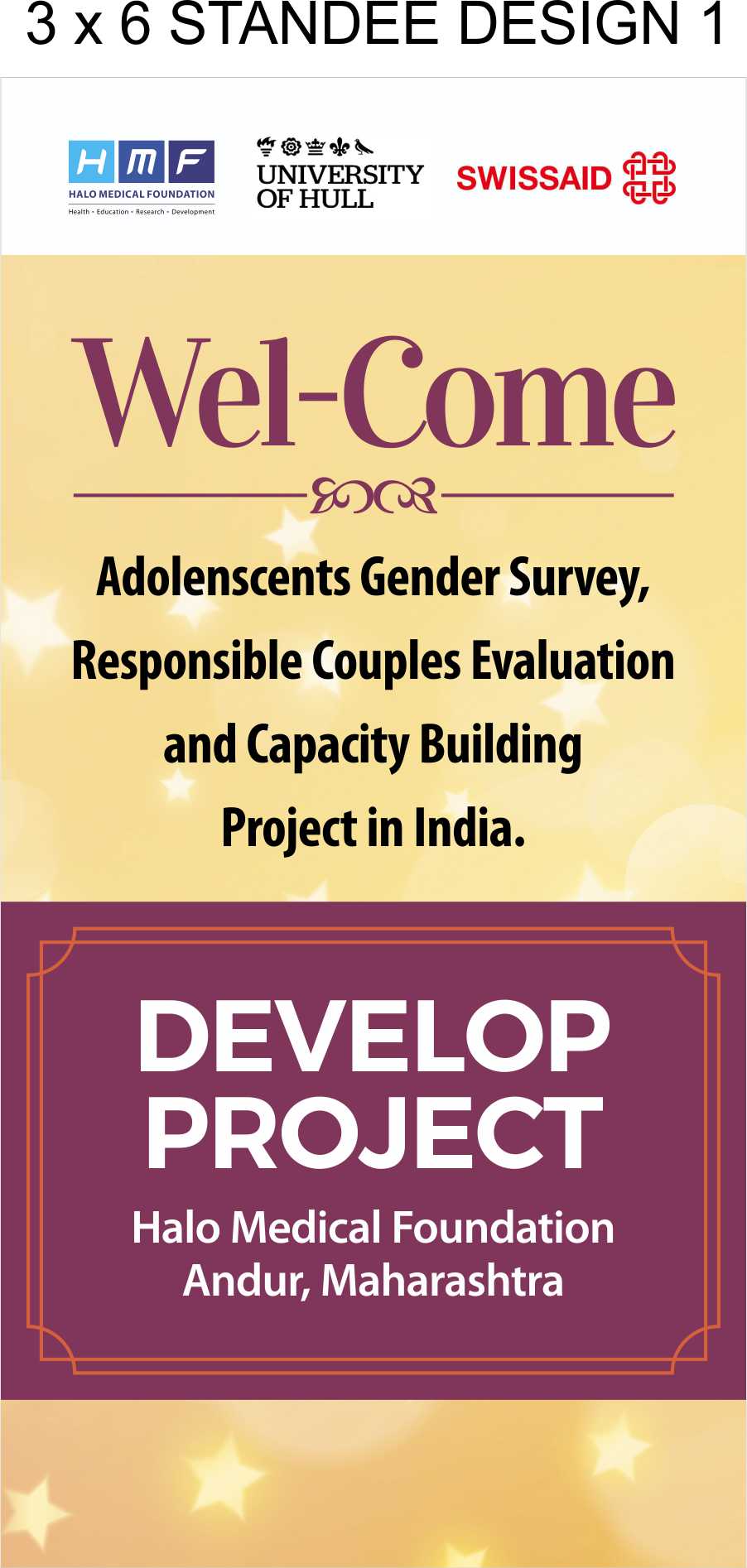Background
Gender equality is a fundamental human right and vital for accelerating global progress towards several Sustainable Development Goals (SDGs). Adolescents’ involvement is essential to achieve such equality and the SDGs to develop peaceful, sustainable societies. However, there is limited data, especially from developing countries such as India, to plan gender equality-related programmes targeted at adolescents.
Methodology
A cross-sectional survey was conducted to assess gender equality related knowledge, attitudes, and behaviours among 16 to 19 year-old adolescents, both girls and boys, from sixty villages of the Lohara and Tuljapur blocks of the Dharashiv district (the field areas of HMF) in the Marathwada region of Maharashtra state of India was conducted. Responses of 1306 participants, of which 51 percent (667) were girls and 49 percent (639) were boys, who had filled a self-reported questionnaire were analysed. 93% of these adolescents were full-time students attending school or college and 20 percent had paid jobs. 67 percent (428) had personal mobile phones among whom 77 percent were boys.
The questionnaire consisted of 22 statements (that were based on the ‘Gender Equitable Measurement (GEM) scale with a few modifications) to assess knowledge, attitude and behaviour (KAB) of the respondents. Each statement had options – agree/partially agree/do not agree that each respondent had to mark. Based on the responses, the scores were catergorised into ‘high GE score’, ‘moderate GE score’ and ‘low GE score’
Key Findings / Results
Data from 1306 respondents (667 females and 639 males) showed a mean score of 30 out of 44, suggesting an overall moderate gender equality score in rural adolescents. The majority of girls (68.3%) were in the high scoring group, whereas the majority of boys (60.3%) were in the moderate group. Regression analysis showed that responses from boys were associated with lower scores compared to responses from girls by five points (adjusted β-coefficient: -4.99, 95%CI: -5.85 to -4.12, p<0.001). This demonstrated a statistically significant difference in GE related knowledge, attitudes and behaviours between boys and girls.
Adolescent boys scored significantly lower than girls suggesting need to develop projects to include boys/young men from an adolescent/early stage through education and training initiatives. These findings align with other studies conducted in India and other countries. Such findings, especially from male adolescents, indicate a worrying trajectory for their future behaviour towards women, as there is substantial evidence that attitudes and behaviours developed in adolescence are carried into adulthood.
Studies have reported some impact through educational programmes with young men; however, literature also suggests that education is not enough. The GE scores in our study were significantly lower in adolescents involved in some type of employment/paid work, suggesting the need for development work that combines gender education and welfare programmes for poor and marginalised families to reduce discrimination and improve equality at family and community level. Available literature reinforces this pattern.
Differences seen in rural population versus studies in urban settings reinforce the need to prioritise work in rural communities by government authorities and NGOs as studies have shown that gender attitudes and beliefs of young men tend to be worse in poorer rural environments than in urban areas.
Our findings also demonstrate inequitable access to mobile phones in our study population where the majority of the boys owned a personal mobile phone (428 participants had a personal mobile of which 333 [77%] were boys). This is one of the examples of inequitable distribution of finances, resource allocations and preferences at family and community level suggesting parental preference to boys to offer such high value item, and decision-making power often centred around men and for men.
Conclusion and Recommendations
The findings suggested a grave need to involve adolescents with a major focus on boys, to improve gender equality in rural areas of Maharashtra. Introducing concepts of equality from an early age would help educate boys, empower girls, and address gender-based discrimination and violence against girls and women.
The research team
Research work was led by Professor Mark Hayter (Primary investigator) and Dr Anand Ahankari (lead co-investigator and project manager) from the University of Hull, UK. The project received support from additional members from UK and India as listed below:
